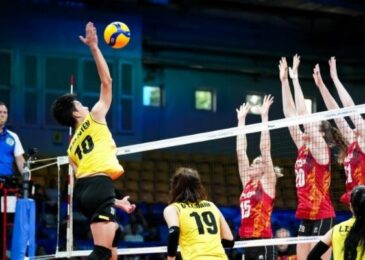For young athletes, maintaining a positive body image can be challenging, especially in a competitive team atmosphere. Melissa Streno, a clinical psychologist specializing in athletic performance and body image issues, explains that despite emphasizing teamwork, athletes naturally compete with each other and rival teams. While this is normal, it can sometimes go too far. Streno highlights the importance of recognizing warning signs and fostering a body-positive culture within your team. Here are some key areas to consider:
Changes in Performance
Pay attention to significant shifts in performance, both physical and psychological. Look out for changes in weight, body shape, fitness, mood, conflicts with teammates and coaches, and isolative behaviors.
Bạn đang xem: Develop Positive Body Image on Teams
Behavior Around Meals
Be mindful of athletes avoiding meals or making excuses to skip them. Changes in behavior around mealtime can be indicators of body image concerns.
Overtraining
Recognize when athletes push themselves beyond the recommended amount of training or try to exercise through injuries. Body image issues are not limited to changes in caloric consumption.
Need for Validation
Xem thêm : Americans Shine at FIVB Club World Championship
When athletes seek constant feedback and validation, it may indicate a potential problem. Monitor changes in an athlete’s communication patterns and their desire for reassurance.
Need for Control
For many athletes, disordered eating and overtraining stem from a need to exert control. Understand that concerns about body image often reflect a desire for control in their lives.
Bullying Others
Food shaming and criticizing others may be a coping mechanism for individuals dealing with low self-esteem. Address any instances of bullying promptly while considering the underlying issues.
Fixation on Food Trends
If you notice athletes consistently discussing diets, body image, and comparing themselves to others, it suggests a broader team issue. Investigate the source of these messages as peer influence plays a substantial role.
Your Words Matter
Xem thêm : U.S. Women’s National Team Claims VNL Gold with Epic Comeback Victory Against Brazil
Be mindful of how your words can shape athletes’ perceptions. Even seemingly harmless comments can have a lasting impact. Speak positively about eating habits, body types, and provide advice focused on overall strength rather than specific physiques.
Focus on Strength
Encourage athletes to prioritize strength over specific body types. Ask them what makes them feel strong, how they can maintain strength, and what gives them energy. Foster a team ethos that focuses on body positivity and highlights athletes’ capabilities rather than their flaws.
Bring in an Expert
If you notice some team members struggling with body image issues or unhealthy eating habits, consider enlisting the help of a sport psychologist or specialist to address the team as a whole. This approach avoids singling out individuals and helps athletes feel less self-conscious. However, if an athlete is experiencing severe food and body-related issues, it’s crucial to seek immediate help.
Find Positive Outside Influences
Encourage athletes to curate their social media feeds by following accounts that promote a healthy approach to sport performance and positive body image. Surrounding themselves with positive influences can make a significant difference.
By being aware of these warning signs and actively fostering a body-positive environment, coaches can help their teams develop and maintain positive body image. Remember that the well-being of athletes goes beyond physical performance and extends to their mental and emotional health as well.
Nguồn: https://alpinetgheep.com
Danh mục: Volleyball


